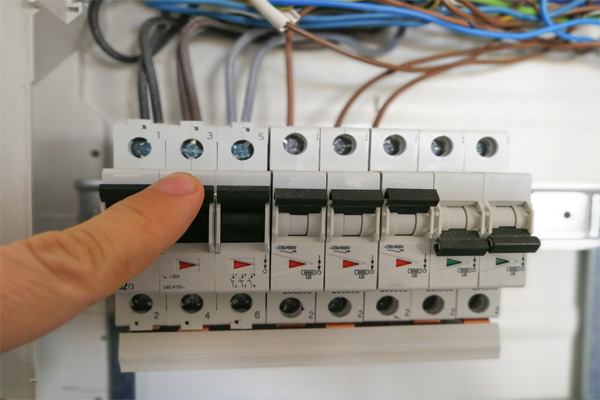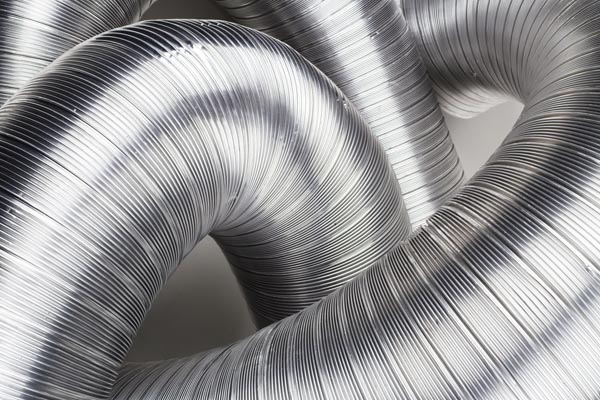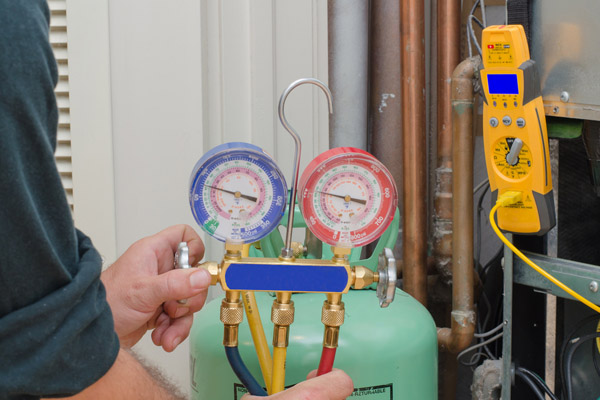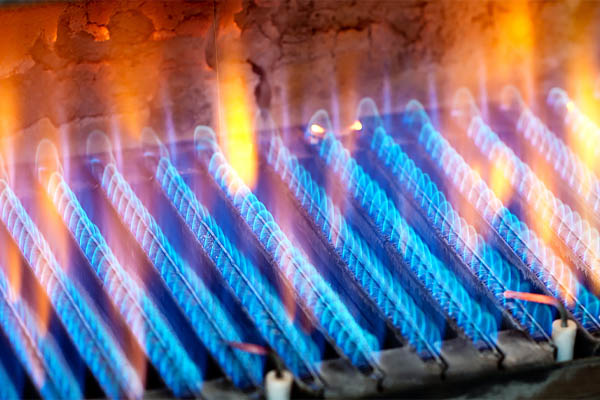Contents

Your HVAC system is crucial to keep your home comfortable during times of extreme weather. However, like all machinery, it can experience a malfunction from time to time. If you suspect that your heating or cooling system is working incorrectly, then you must identify where the issue originates if you can. By having some basic troubleshooting techniques, you can prevent most HVAC emergencies from occurring in your home.
How To Identify & Prevent HVAC Emergencies In Your Home
In this article, we will talk about a few common HVAC emergencies. We cover the best methods to identify these types of problems and the means to solve them. These common HVAC emergencies include electrical issues, negative air pressure, drain line blockages, refrigerant leak, and gas leakage.
Electrical Issue

When you switch your HVAC system on, but it isn’t running, then there might be an electrical interruption. A fuse that is blown usually causes it. To see if this is the case, check the circuit breaker. Another common cause is a problem with the contractor. It is the device that turns the electrical current in your HVAC unit on and off. Unfortunately, it can stick and end up overrunning your system. It can also get worn out and disrupt the electrical current from reaching your HVAC unit.
Signs that your system is having electrical problems are it is running continuously, or it is not turning on at all. You might also notice a burning smell permeating in your home. You must schedule annual maintenance for your HVAC equipment. A tune-up will address problematic electrical components and wires.
Negative Air Pressure

Heating and cooling systems create negative air pressure in your home when it remove the air to adjust the temperature. However, any air that is remove needs to be returned to ensure that the levels remain balanced. Otherwise, too much negative air pressure will cause problems with your HVAC unit and the air quality inside your home.
If you have leaky ductwork, your HVAC system cannot return air properly.
Some of the common signs that point to negative air pressure in your home include doors that suddenly open or close on their own or doors that seem like they are stuck or unusually heavy. Other signs include odd drafts, uneven room temperatures, and whistling noises.
Drain Line Blockage
Water is a natural by-product of the cooling process. Unfortunately, it can cause water damage to your air conditioner when the water does not drain properly. However, ACs are equipped with drain lines to drain the water from the evaporator coil. Algae and muck can grow in the evaporator coil and cause a blockage. This clog means that water cannot be adequately drained and can back up to the unit. If this goes unchecked for a long time, severe water damage to your HVAC equipment and home can happen.
Check if water is leaking from the indoor air handler. This is the most common sign that there is a clog in the drain line. A few other things to look out for are unusual dampness in the air and mold or rust near or on your HVAC unit.
Refrigerant Leak

A refrigerant is a mixture, usually fluid, that is vital in the HVAC system’s cooling cycle. It cycles between the outside and inside units via a refrigerant line that connects them. Over time, this line can weaken and might end up having holes and tears. The coolant will leak from these gaps, and the system won’t have enough refrigerant.
A sign that your unit is leaking refrigerant is when you hear a hissing sound coming from the indoor air handler. The vents would also release air that isn’t as cold as it should be. You would also have an increased electricity bill even though your system isn’t properly cooling your home. You can also check and see if the evaporator coils are frozen. The ice buildup is because of the condensation that forms around the coil as the coolant does not circulate properly.
Gas Leakage

Gas leaks are the most dangerous issue a natural gas-powered heater could have. It is not only hazardous to the occupants’ health, but it could also lead to an explosion if you do not address it immediately. If you smell gas or rotting eggs around your home and hear a hissing or whistling sound, call an HVAC professional as soon as possible. Routine checks to your HVAC system and the gas line will ensure that there are no holes or gaps that cause gas leakages.
Best Way To Prevent HVAC Problems
To ensure that your heating and cooling unit is in excellent shape, make sure that it receives annual maintenance from a licensed and certified HVAC technician. They have the knowledge, skills, and experience to catch even the smallest problem. This way, you avoid escalating a problem with your HVAC equipment or, in some cases, prevent any problems from happening at all.
Call Wilcox Energy For Your Home HVAC Requirements

For superior heating and cooling services in the southern Connecticut shoreline, do not hesitate to call Wilcox Energy. We can provide you with services that prioritize your energy efficiency, comfort, and indoor air quality. Our NATE-certified technicians can help you with all your HVAC needs, including tune-ups, repairs, installations, and replacements. Rest assured that each of our techs has the knowledge, skills, and experience to do the job right the first time around.
Wilcox Energy offers the most competitive heating and cooling service rates in the area. If you are looking to install a new HVAC system, we can help you choose the best one for your home while staying within your budget. For all your heating and cooling needs, contact Wilcox Energy representatives today. We offer free, in-home estimates.
For more information about our HVAC services, be sure to contact Wilcox Energy. You can click here to contact us, or you can call us at (860) 399-6218 to find out more. We offer a full line of heating and cooling repairs, maintenance services, and installations.
